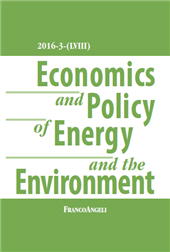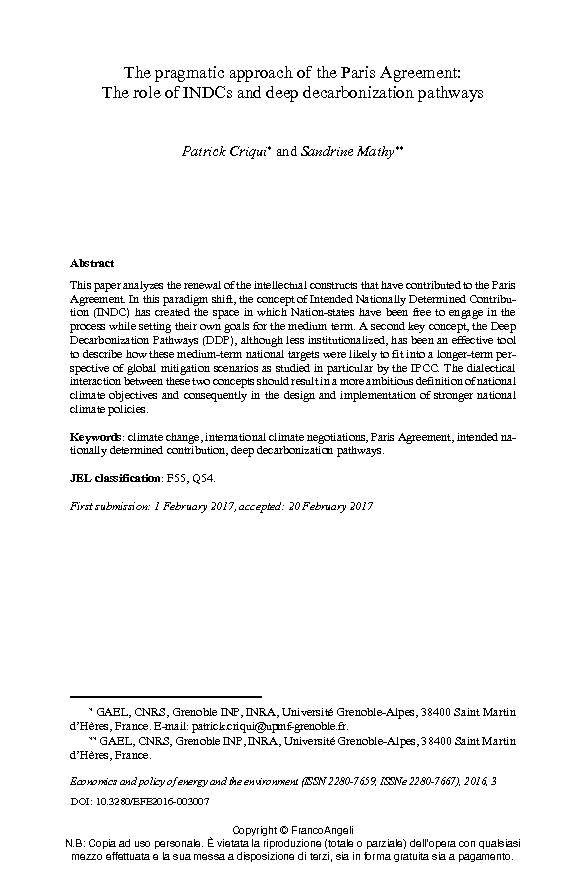The pragmatic approach of the Paris Agreement : the role of INDCs and deep decarbonization pathways
79-87 p.
Energy efficiency information campaigns are key to promote energy savings and reduction of air pollutants. The study's aim is to assess the impact of an information campaign on heating systems maintenance implemented in a province of Northern Italy conducted developing ad hoc communication material, including posters, brochures, online advertising and media com-munication. Our analysis considered selected outcomes over the period 2008-2014. We report decreasing heating systems irregularities (from 52% to 31%; p<0.05), decreasing reported âÂlack of maintenance' (from 23.3% to 12.2%; p<0.05), decreasing of other non-compliances (location: -62.5%, p<0.05, ventilation: -72.4%, p<0.05, among others) as well as decreasing fines to users (from 229/year to 137/year). These results support the hypothesis that campaigns to improve energy efficiency behavior could be considered as appropriate measures to promote and facilitate an efficient use of energy by small energy customers. [Publisher's Text].
Fait partie de
Economics and Policy of Energy and Environment : 3, 2016-
Articles du même numéro (disponibles individuellement)
-
Informations
Code DOI : 10.3280/EFE2016-003007
ISSN: 2280-7667
KEYWORDS
- Climate change, international climate negotiations, Paris Agreement, intended nationally determined contribution, deep decarbonization pathways



